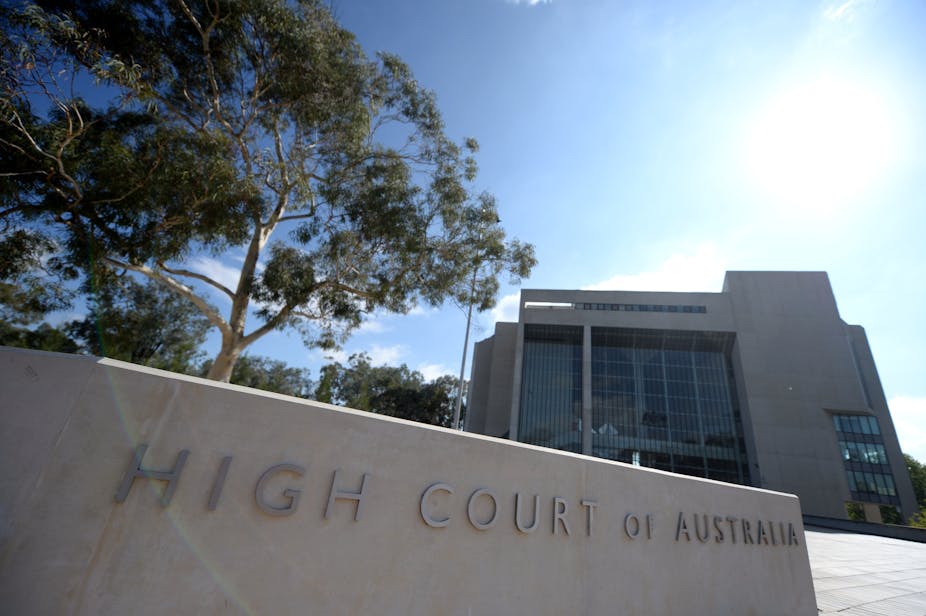The Australian government gave an undertaking to the High Court on Wednesday that it would not surrender or deliver the asylum seekers detained on an Australian customs vessel on the high seas to Sri Lankan military custody without 72 hours written notice. However, the government also emphasised its commitment to secrecy in the pursuit of its military-led Operation Sovereign Borders.
At the hearing, High Court Justice Susan Crennan heard emergency submissions from lawyers representing 48 of the 153 Sri Lankan Tamil asylum seekers.
Ron Merkel QC, on behalf of the asylum seekers, said it was clear that the government planned to imminently return, “involuntarily and by coercion”, these people – including a reported 37 children – to Sri Lankan authorities. This return of potential refugees to the place where they fear persecution would breach Australia’s non-refoulement obligations under the UN Refugee Convention.
Lawyers have not been able to communicate with the asylum seekers, or determine what processes they have been subjected to.
The UN Human Rights Council is investigating reports of war crimes committed by the Sri Lankan authorities during the recent civil war. Australia did not support the Human Rights Council’s resolution. Other states to oppose the decision included China, Iran and Zimbabwe.
Amnesty International, the UN High Commissioner for Human Rights and the US State Department have confirmed that Tamils continue to face persecution, including sexual violence and torture, at the hands of Sri Lankan authorities. Human Rights Watch has also documented the widespread problem of mistreatment and torture inside Sri Lankan detention facilities.
Historically, according to Merkel in argument before the High Court:
90% of Sri Lankan boat arrivals to Australia have been found to be refugees.
The Australian government argues that the boat in question was intercepted outside Australian territorial waters, and as such its occupants are outside the Migration Act’s jurisdiction.
Australia is currently the target of negative international commentary on its recent decision to return 41 Sinhalese and Tamil asylum seekers to Sri Lankan authorities. While nine children have been released without charge, the 32 adults on the ship, who had tried to reach Australia by boat, now face criminal charges in Sri Lanka for leaving without authorisation.
Their expedited immigration processing involved teleconferences on the high seas, during which asylum seekers were asked only four questions. Refugee Council of Australia president Phil Glendenning condemned this process as lacking procedural fairness:
It’s stripped back to ensure it is almost impossible for people whose protection claims need further examination to receive a fair hearing.
In 2010, the Australian government argued that its officials were not bound to apply procedural fairness in conducting offshore assessments of asylum claims. The High Court found against the government, and determined that it is bound to apply the Migration Act and its guarantees of procedural fairness when considering claims for protection.
Human Rights Commission president Gillian Triggs argued yesterday that Australia’s corresponding obligations under international law require the option of independent and impartial review, should claimants receive a negative assessment.
Instead, 41 asylum seekers have been handed over to the Sri Lankan authorities without access to review, and at potential risk to their wellbeing. Australia’s Migration Act was passed in 1958 in part as a means of incorporating our obligations under the Refugee Convention into domestic law. Australia is also party to the UN Convention Against Torture and the International Covenant on Civil and Political Rights, both of which prohibit refoulement.
The applicants in the current High Court case are expected to seek orders preventing their transfer to offshore immigration detention on Manus Island or Nauru. More broadly, lawyers for the asylum seekers will argue that the jurisprudence of the High Court, building on the Federal Court’s decision in the Tampa case, would not authorise detention for the purpose of:
… removal to a country in respect of which the protection of non-refoulement is being claimed.
Australia’s self-perception as a responsible member of the international community is called into question by its treatment of these particularly vulnerable people. Australia takes advantage of the fact that international law is not automatically absorbed into its domestic legal system. Australia advocates for human rights standards at the international level, yet is highly selective in the incorporation of those standards in domestic legislation and policy.
This piece was amended on July 14 to correct Australia’s stance on the UN Human Rights Council’s resolution on Sri Lanka.

